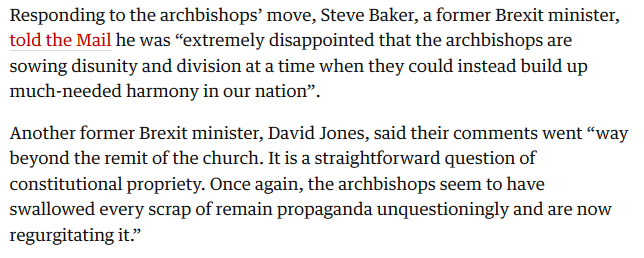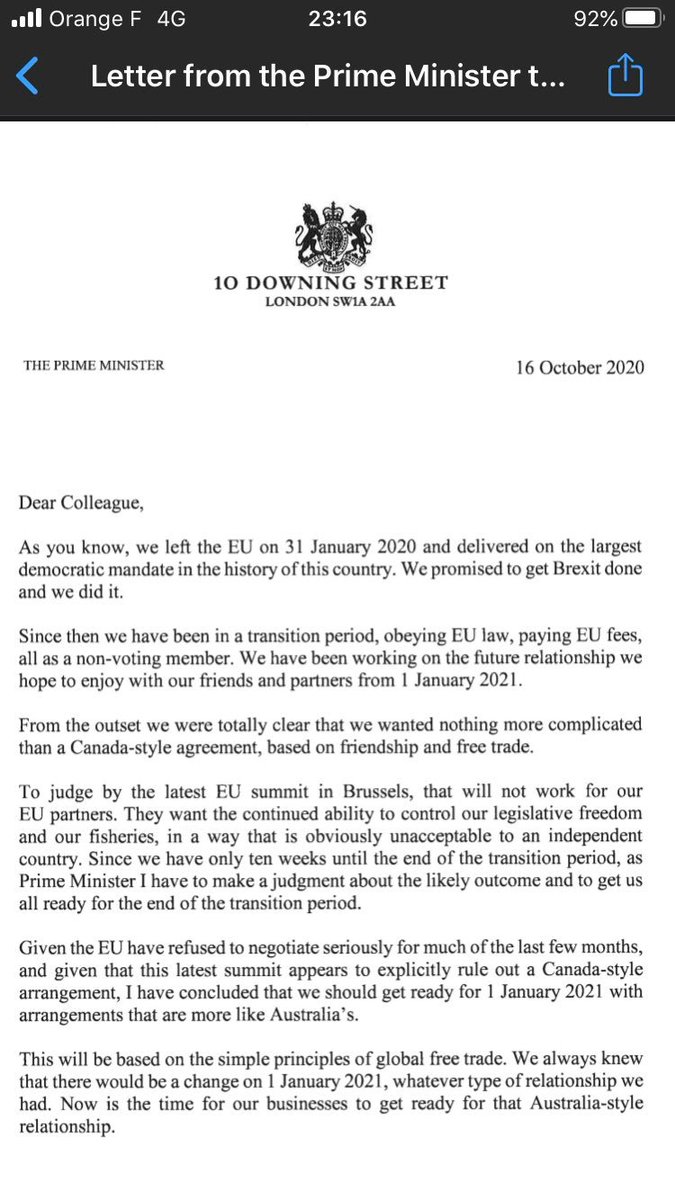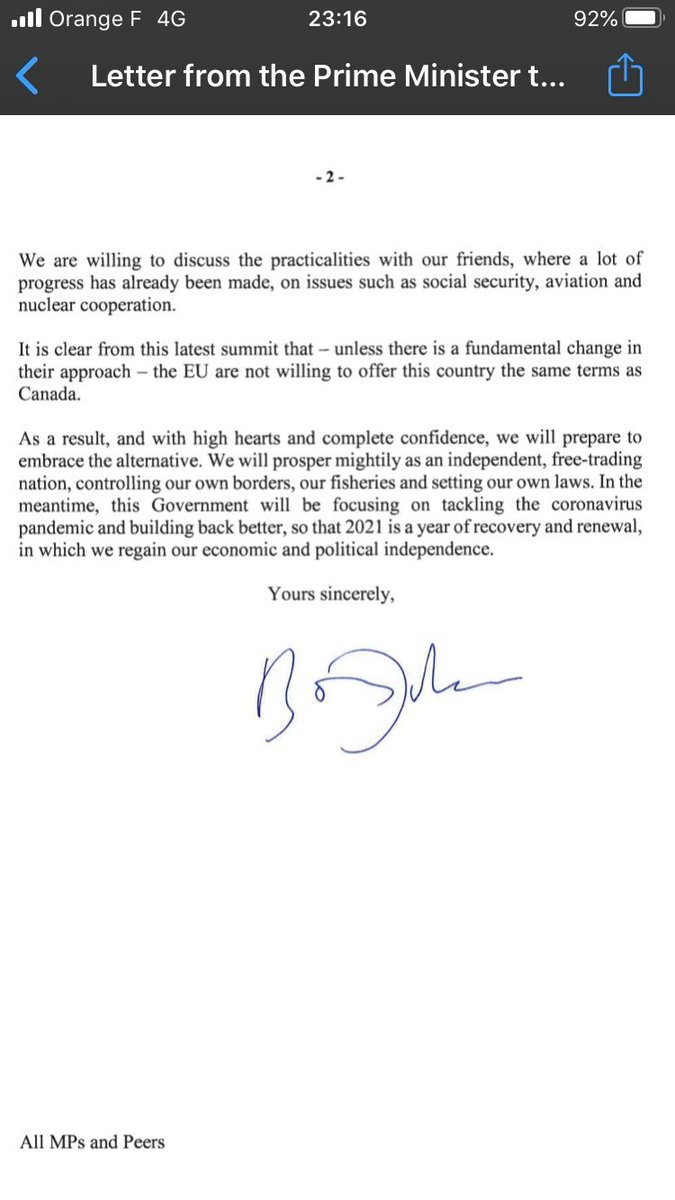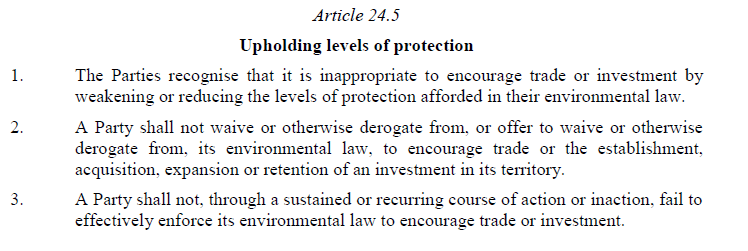
Brexit. UK-EU talks. Let's try to explain why we're in such a state, of increased risk of no deal, moving away from the fish and playing fields which are the detail but not the answer, to differing philosophies and divorce parallels that might just help... 1/
First, with apologies to those concerned, we need to go beyond those saying this is the inevitable path to deal / no-deal. Half of them will be right and I'll definitely be wrong (don't worry, I'm hedged in wine bets), but it wasn't inevitable, typical, or necessary. 2/
I'll also ignore the content of any deal, which has been clear for months, the UK compromises on level playing field, the EU on fish. Something so obvious really isn't the fundamental issue. Could, as some not noted for their perspicacity have said, be done in an afternoon. 3/
Some truth in the idea that flounces and playing the tough cop are a part of trade negotiations. But equally as we're in about the 5th pass of these, I think it has ceased to be helpful. Either side could already have cut the deal having shown their toughness. 4/
Some fundamentals then, that we've forgotten. First, the trade deal that will lead to much less free trade than before. The incentive structures, the ability to create a win-win, are inevitably going to be different to a normal deal. 5/
Next, trade deals are a closer binding based on trust, they may not even seem to provide much greater access than WTO, but are a symbol of both sides intention to work together. Both parties accept the rules as part of the trust. To put it mildly, absent between UK and EU. 6/
Next, UK oscillation on preferred outcome (a mild preference for a deal) compared to the EU as a process driven trade negotiating machinery, which assumes both siudes want a deal that can be done. I think this contrast explains a lot of friction. 7/
Odd one, but UK treaty literalism versus EU agreement concepts. Not that the EU don't want good treaty text, but in operation it is the framework for what happens, not the last word. Whereas the UK seem to be concerned about exact text pinning us down. 8/
I'm afraid the approach of the UK government to the Northern Ireland protocol, leading to the Internal Market Bill, has shown the problem of the selective literal reading. Instead of assuming we can suitably fudge operations we are trying to pin down exact meanings. 9/
Perhaps most of all we need to be thinking of post divorce emotions. An EU wanting to go through a careful process to arrange all the details. The UK wanting it all over as quickly as possible, with as few future constraints as possible to show it really is all over. 10/
Yesterday's PM letter a classic emotional outburst you could imagine in a divorce situation, sort of "I have done everything you asked and you are still not being in any way fair so I am going to go my own way and I will be fine and I really don't need you" etc... 11/ 

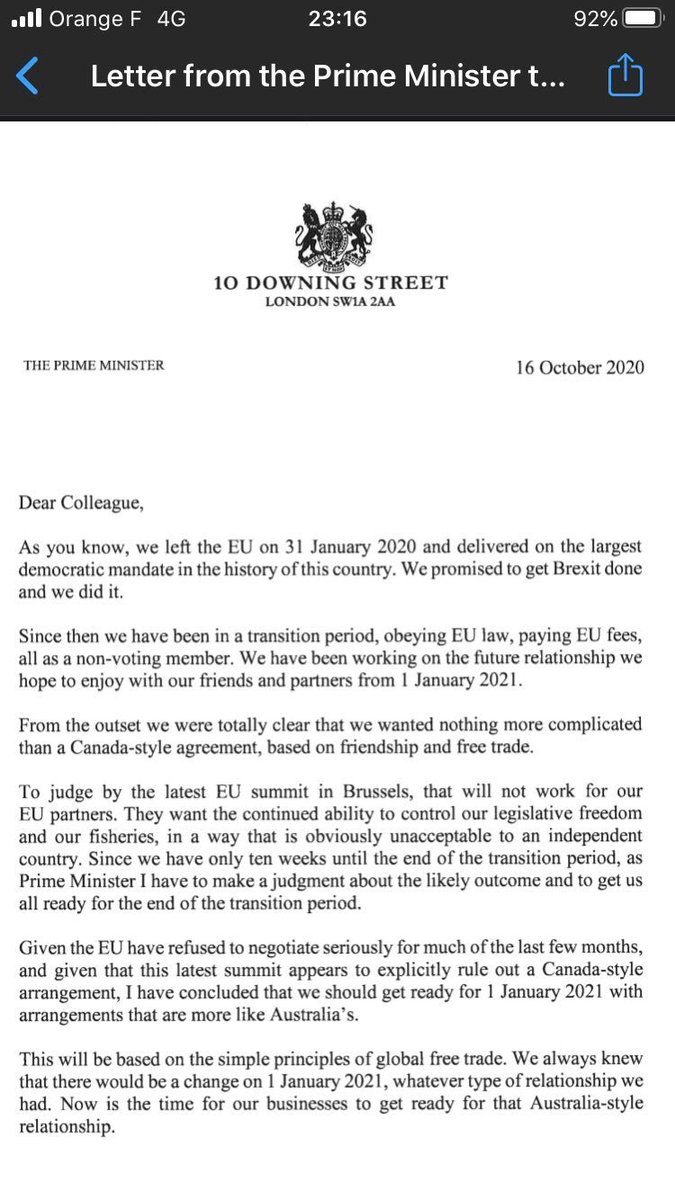
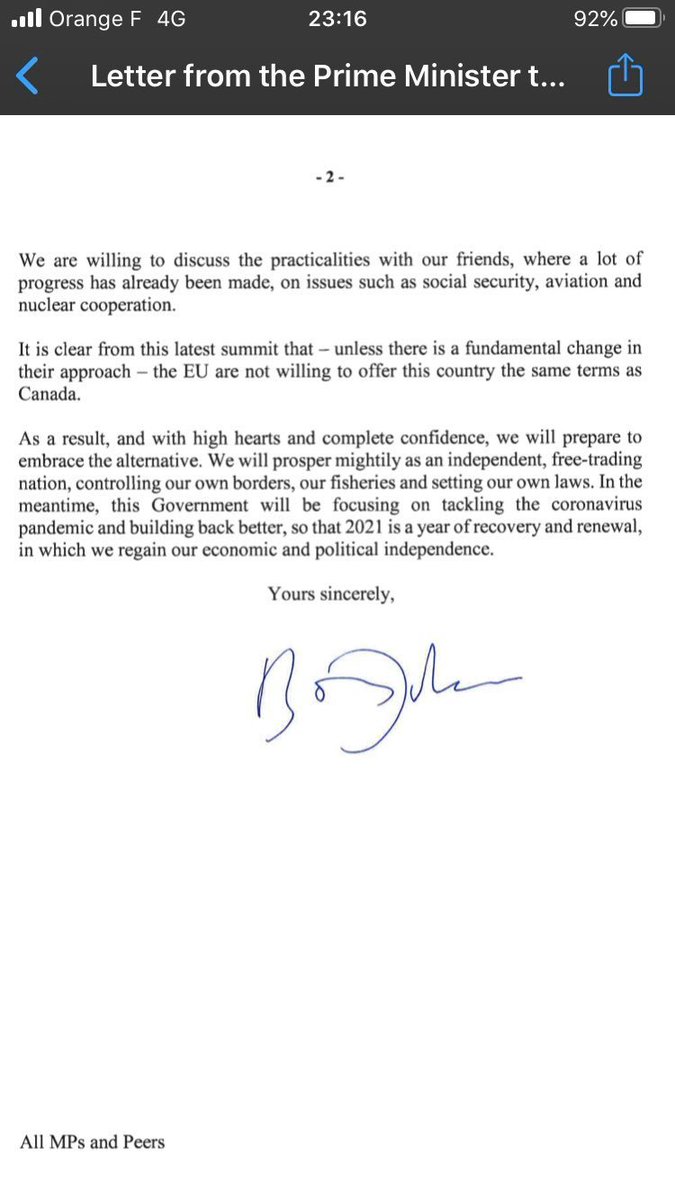
The EU cannot I would suggest deal with such UK emotions except by reverting to process, which probably isn't very helpful. But the UK is so emotional that it is struggling to accept that the EU really does have the right to request some rules for the future. 12/
So should the UK and EU abandon the trade talks and go for intensive divorcing couples therapy instead? Given peacekeepers in international diplomacy tend to be associated with ending wars we probably don't want to go there. 13/
However if the problem is more about significant differences in philosophy that led to the divorce in the first place, then the answer probably isn't just to have another conversation about fish. Or another row. It is going to be something different. 14/
Last year we had Leo Varadkar sweet-talking Boris Johnson, the main difference to now being that there was only one real issue to resolve, and both parties had strong grounds for an agreement. Result, deal. Not sure it could work again. 15/
Ultimately what we seem to need is the UK to be reassured the EU doesn't want to set our rules, and the EU to be reassured that the UK isn't going to cheat. And that won't come in the text, it can't. Because these are the deep seated fears with truth in them. 16/
I don't know how you provide these levels of assurance in a couple of weeks, sufficient to overcome the not insignificant challenges of a UK government overturning planned legislation and the European Parliament approving a deal. But that is what is needed. 17/
Right now if the UK and EU signed a trade deal it wouldn't last. You couldn't insulate it against mutual suspicion. At the same time no deal increases the mutual suspicion and is costly for both sides, and let's not get into who bleeds more, pointless conversation. 18/
So as far as I can see it is 2 weeks for the UK and EU, or frankly someone else they trust if there is anyone, to find a new way to communicate. Actually Johnson was right, this is the end of the road without change. But wrong, as it needs both sides. Over to... someone? 19/ end
• • •
Missing some Tweet in this thread? You can try to
force a refresh

